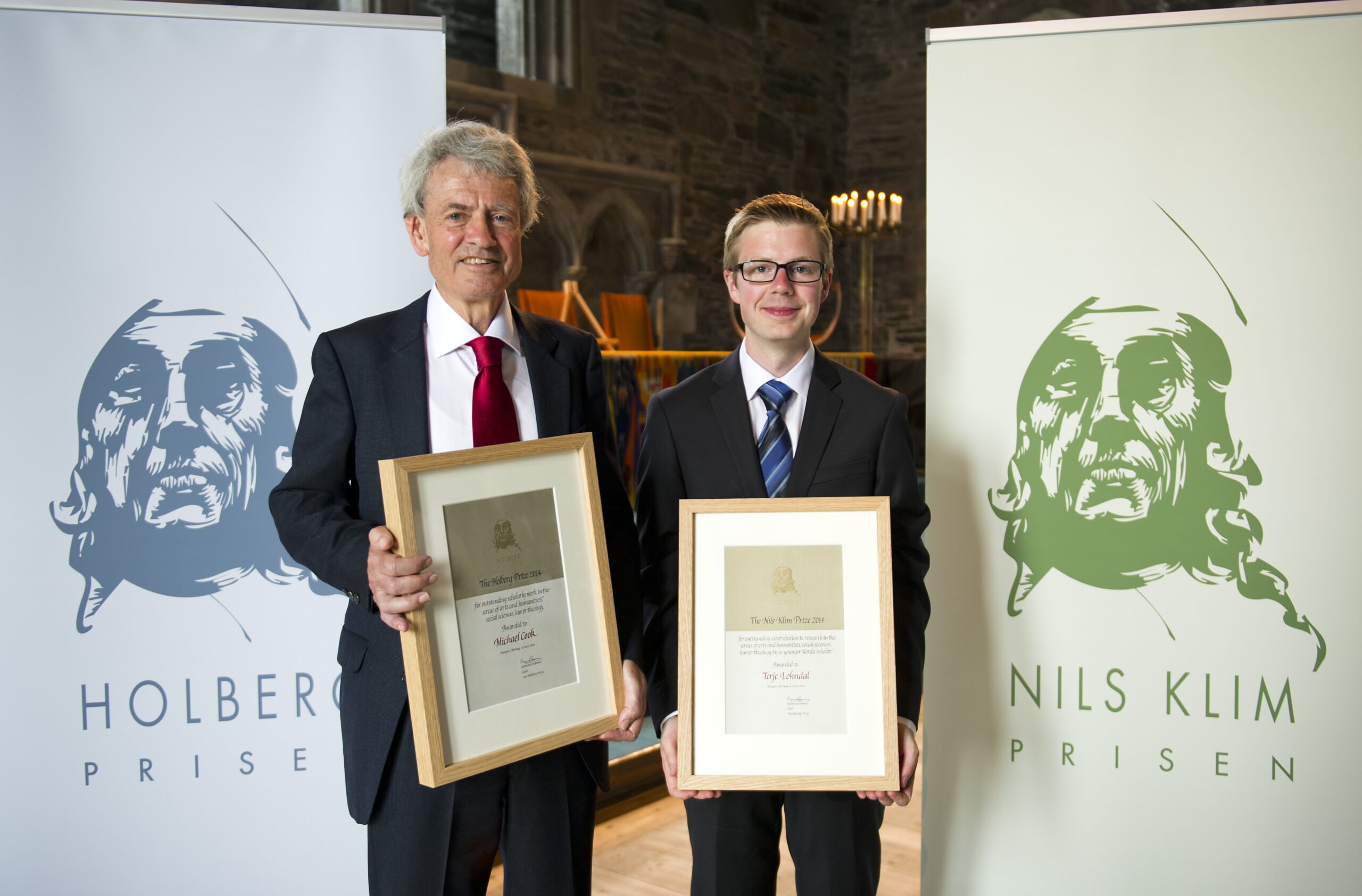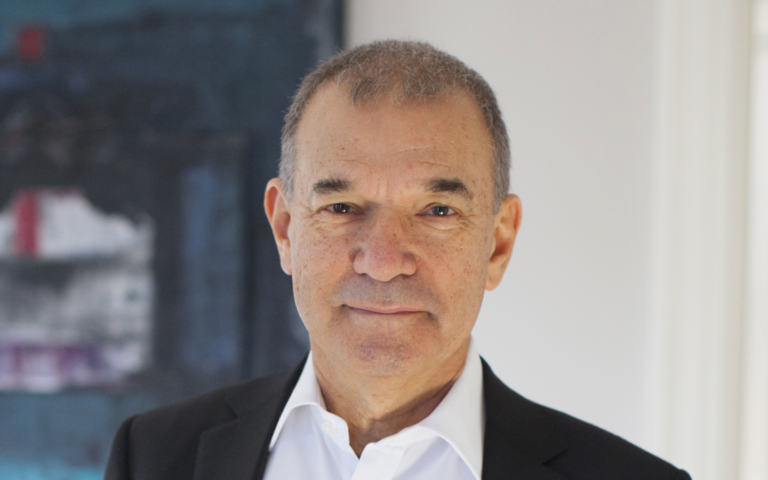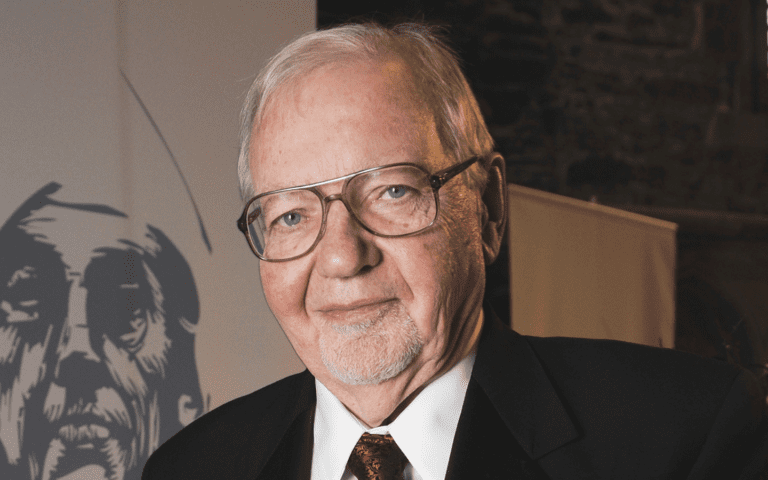
The british historian Michael Cook is awarded ‘the Nobel Prize of the arts, humanities and social sciences’. Terje Lohndal is the youngest recipient ever to be awarded the Nils Klim Prize.
Chair of the Holberg Board, Sigmund Grønmo, announced the winners in Bergen today, March 11. The official award ceremony will take place June 4 in Bergen where the prizes will be presented to the laureates by H.R.H. Crown Prince Haakon and Minister of Education and Research Torbjørn Røe Isaksen. Michael Cook (1940) is a Professor at the Department of Near Eastern Studies at Princeton University. Selected titles include Commanding Right and Forbidding Wrong, A Brief History of the Human Race and The Quran: A very short Introduction. Spring 2014 his new book Ancient Religions, Modern Politics: The Islamic Case in Comparative Perspective will be published on Princeton University Press
According to the Holberg Committee Cook’s research has uncovered new perspectives on the relationship between religion, politics and law. Moreover, he has reshaped fields that span from Ottoman studies, the history of the Wahhabiyya movement, and Islamic law, ethics and theology. He was also among the first scholars to employ non-Islamic sources when researching the genesis of early Islam.
Cook’s research has been translated into many languages; Japanese, Arabic and Persian to mention a few. During spring 2014 Cook will publish another book which explores why Islam has gotten a prominent political role in our time.
The Holberg Prize amounts to 4,5 million Norwegian kroner and has been called ‘the Nobel Prize of the arts, humanities and social sciences’.
The youngest Nils Klim-laureate ever
The linguist, Terje Lohndal (1985), is the youngest recipient of the Nils Klim Prize ever. The Prize amounts to 250 000 Norwegian kroner.
Lohndal receives the Prize due to the originality of his many publications on a high international level.
Lohndal is already an international household name within the linguistics. His research is often described with formulations as Chomskyan linguistics and formal grammar. Lohndal himself says that he wants to understand the human language faculty.
– I want to know whether there are any language-specific mechanisms at work, and what the interplay between the language faculty and general cognition is. It is an incredibly ambitious and demanding project. Specifically I am looking at the interplay between language structure and meaning, says Lohndal. Lohndal is educated at the University of Oslo and received his PhD-degree at the Department of language and literature.
Last edited:
Published:
Related content

“Everyone dreams at night”: Interview with Stephen Greenblatt
What are the paths and life events that have led 2016 Holberg Laureate Professor Stephen Greenblatt to where he is today? Where will he go from here? How will the humanities survive the current crisis? Those are some of the questions Greenblatt answers in this exclusive interview.

About Fredric R. Jameson
Fredric R. Jameson (born in 1934 in Cleveland, Ohio) is one of today's most important and most influential cultural theorists. He has done more for the contextual study of culture than any other living scholar. Over the past four decades, he has developed a richly nuanced theory of how modern culture – in particular, literature, painting, cinema, and architecture – relates to social and economic developments.

About Ian Hacking
Ian Hacking (born in 1936 in Vancouver, British Columbia) is one of the world's leading scholars in the fields of philosophy and history of science. He has made important contributions to areas as diverse as the philosophy and history of physics; the understanding of the concept of probability; the philosophy of language; and the philosophy and history of psychology and psychiatry.

